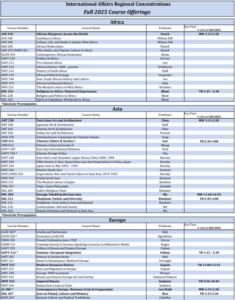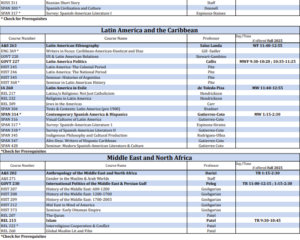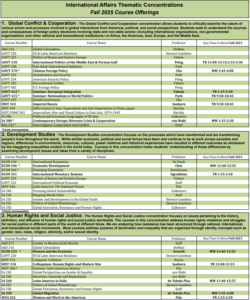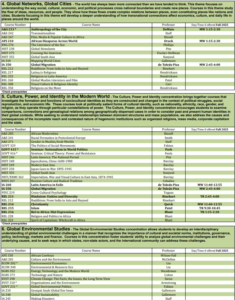Fall 2025 IA Courses
Required International Affairs Courses Offered
Fall 2025:
IA 200: Globalization and Its Critics
Professor: von Wahl
Class time: TR; 9:30am – 10:45am and 11:00am-12:15pm
IA 280: Research Methods in International Affairs
Professor: Gallemore
Class time: MW; 2:45pm-4:00pm
Elective International Affairs Courses Offered
Fall 2025:
IA 260: Latin America in Exile
Professor: de Toledo Piza
Class time: MW; 11:40am-12:55pm
IA 350: Global Migration
Professor: de Toledo Piza
Class time: MW; 2:45pm-4:00pm
IA 380: Cont.Europe: Crisis and Cooperation
Professor: von Wahl
Class time: MW; 1:15pm-2:30pm
International Affairs Regional Concentrations



